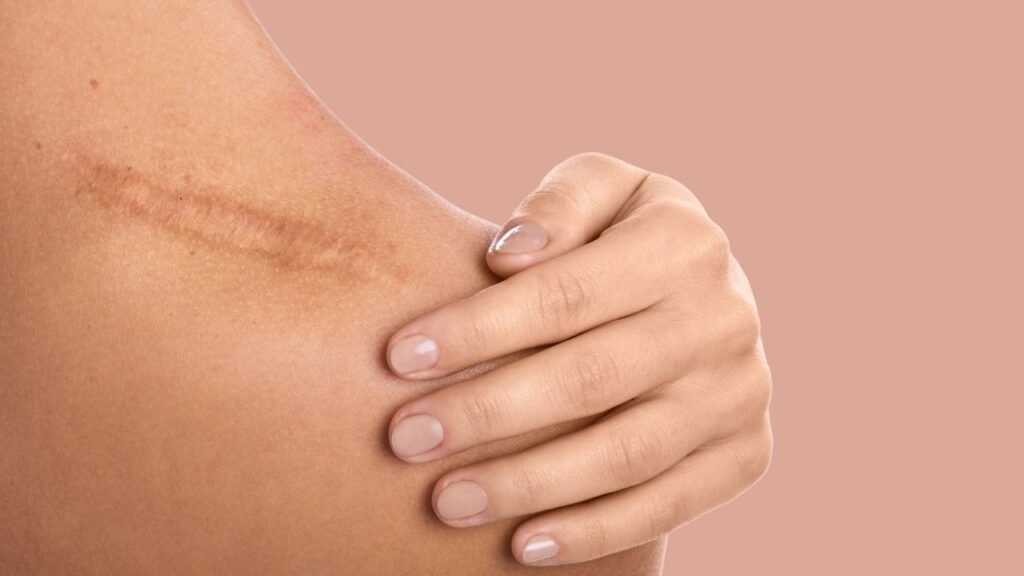Table of Contents
Overview
A pigment called melanin gives color to your skin. If the production of melanin gets disturbed and it gets produced in excess, it affects your skin in spots and patches.
People with excess melanin face dark or brown spots/patches on their skin. This is known as hyperpigmentation and sometimes brown hyperpigmentation. Some skin conditions like freckles, melasma, age spots, and sunspots are all types of hyperpigmentation.
But, the question is, does brown pigmentation goes away?
What is brown pigmentation?
When your skin produces excess melanin, it shows dark patches, dark spots, discoloration, or darker skin. Hyperpigmentation can be thought of as a catch-all word for darker pigment.
To put it another way, the problem we see is patches of skin where there is an overabundance of melanin. As a result, skin patches seem darker than the surrounding skin.
The hands, arms, and face are the areas of the skin that are most prone to hyperpigmentation.
But, what causes hyperpigmentation? Let’s know in detail.
Causes
Evidence suggests that hyperpigmentation can be caused by a variety of factors, including:
- Inflammatory hormones that alter the sex steroids estrogen and progesterone, such as those produced by pregnancy or birth control tablets, can induce melasma, a kind of hyperpigmentation.
- Addison’s illness – Heredity refers to your genetic makeup as passed down from your parents, grandparents, and other relatives.
- Acne – Antibiotics, retinoids, antiarrhythmics, and antimalarial medications, both topical and oral, can cause phototoxic (sun-sensitive) inflammation in the skin, resulting in increased pigmentation.
- External stimuli that trigger melanocytes (the cells that create melanin), also known as inflammatory mediators, include sunlight, various fabric dyes, and plant-derived irritants like poison ivy.
- Lentigines, also known as liver or age spots, are a patchy, uneven freckle-like look on the skin’s surface caused by the disorder.
- NSAIDs (non-steroidal anti-inflammatory medications) is a type of non-steroidal anti-inflammatory drug.
- Chemotherapeutic medicines are drugs used to treat cancer (used for treating cancer and autoimmune diseases).
- Resurfacing operations, heating, and chemical burns are all examples of cosmetic surgeries.
- Eczema is just one form of dermatitis. It is responsible for hyperpigmentation.
So, it might be anything ranging from bad luck with your genetics to recommended drugs or therapies you’re undergoing. To know the right cause of your hyperpigmentation, consult a dermatologist.
Does Brown hyperpigmentation go away?
Yes. to begin with, the most crucial step towards the best treatment is to take medical assistance. For this, consult a dermatologist. He will tell you the type of hyperpigmentation you have and suggest treatment accordingly.
At first, to prevent hyperpigmentation,
- Avoid sun exposure and apply a broad spectrum SPF before stepping out.
- Avoid picking at scabs, spots and acne as they leave dark spots/marks.
Next, your doctor will prescribe some topical creams to balance the pigmentation. These products will include specific ingredients like:
- azelaic acid
- retinoids
- hydroquinone
- corticosteroids
- kojic acid
- vitamin C
Lastly, your dermat can suggest some cosmetic procedures like:
- Microdermabrasion is a popular treatment for making skin appear brighter and healthy.
- IPL (Photofacial)-Enhanced pulsed rays are used in IPL (Photofacial) therapy. Professionals frequently recommend it to cure hyperpigmentation.
- Chemical peels, commonly known as TCA peels or deeper phenol peels, are a type of chemical peel. These can aid in the healing process and eliminate breakouts and increase collagen formation. Because scarring and abnormalities can occur, an experienced therapist should only perform this treatment.
- Laser Peel-Various laser resurfacing procedures are now available, but they can be costly. This procedure will be moderately expensive. The cost depends on the pigmentation area’s size and the number of treatments required.
- Concealers–Cosmetic concealers or camouflage makeup may suffice if only a few minor flaws are evident.
Conclusion
Even though hyperpigmentation is perfectly safe, some people would prefer to get rid of it for cosmetic reasons. People should take care of their skin and avoid sun exposure.
If you have freckles, melasma, or age spots, you can get treatment for it. A complete cure is sometimes difficult, but an expert dermatologist can give the best results.
If you have brown pigmentation, choose the right dermatologist and book an appointment!





